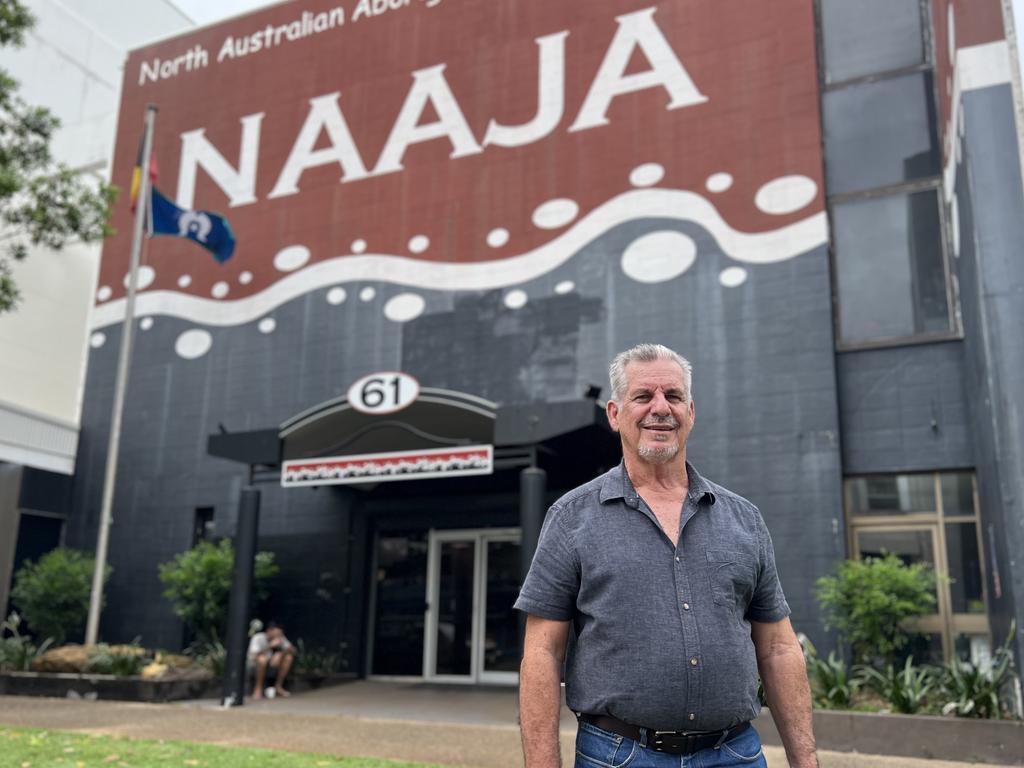Aboriginal legal board warned months in advance of ‘extreme risk’ of a serious internal crisis
The board of Australia’s largest Aboriginal legal service was told as early as November that it was at ‘extreme risk’ of a serious crisis that may see a severe reduction in critical services.

The board of Australia’s largest Aboriginal legal service was warned as early as November last year that the organisation was at “extreme risk” of a serious crisis that may see a severe reduction in critical services and see the agency stripped of its government funding.
The Australian has obtained an information deck that was provided to the North Australian Aboriginal Justice Agency’s board before the service suspended services in Alice Springs, that warned high staff vacancy and “extreme caseloads” for criminal lawyers could result in the “possibility of grant funds being transferred to another provider”.
The deck also warned that if the board adopted a “negative response” to pressure weighing on the organisation, it could be playing “into the hands of critics” including Country Liberal senator Jacinta Price, and would risk “reinforcing public opinion that Aboriginal orgs (sic) are inherently weak, (and have) poor governance & management.”
This comes as the NT government determines whether the embattled service should see the $20m in federal government funding it receives every year distributed to other organisations, after the federal Attorney-General’s department last week gave permission for the Territory to redirect funding.
The Australian understands the information deck, compiled by former CEO Olga Havnen, was given to the NAAJA board in early November last year.

It provides strategy for the organisation to “rebuild” its “reputation, profile and credibility” and to “deliver quality services” to ensure the “survival of NAAJA in immediate, short and long term”.
The deck describes the organisation of being in “extreme risk”, and stipulated that if the executive did not do anything to remedy the situation, it would result in “further reputational harm and damage, possible increase in staff resignations, difficulty with recruitment and new starters may withdraw.”
It also warned against “increased difficulties in delivering services” and “increased likelihood that funding will be withdrawn” if critical action was not taken.
The deck warned leaders that adopting a “negative response” could pander to critics such as Senator Price, who has previously called on the federal government to investigate serious allegations of corruption, bullying and fraud from within the organisation.
The deck also said taking a negative approach to criticisms could result in a “likely freeze on NAAJA funding” or “re-direct $$ to another provider.”
Alternatively, Ms Havnen encouraged the board to take a “constructive” or “proactive” approach to the alleviate difficulties facing the organisation, in order to regain “trust and confidence of funding bodies” and “improve public reputation and credibility”.
She encouraged the board to “engage (a) strategic comms (sic) team to provide advice on strategy development, implementation and key messaging – internally and externally.”
She stressed the importance of preparing appropriate communication documents, including media releases, and to profile NAAJA’s “successes and achievements”.
Ms Havnen also said it was critical for the board to “fast track” the implementation of recommendations that came from a KPMG audit last year, which, among other findings, found Aboriginal workers within the organisation were forced to complete “culturally inappropriate” tasks.
This deck was provided to the board amid revelations printed in The Australian about explosive claims of corruption, fraud, bullying and drug use within the NAAJA, including allegations, aired in the Federal Court, that former CEO Priscilla Atkins, and current CFO Madhur Evans and chair Colleen Rosas, misused thousands of dollars in taxpayer funds.
Amid these allegations, dozens of staff have left the organisation, leaving it chronically short-staffed and forcing a shutdown of legal operations in Alice Springs from mid-November last year.

Late last week, NAAJA released a statement saying it was “disappointed to see ongoing attacks being made on the organisation, which are simply not true.”
“Last year, police conducted a thorough investigation into unfounded allegations against the chairman and a senior staff member, resulting in no adverse findings and no further action,” the statement read.
“Having cleared up those legal questions, NAAJA is single-mindedly focused on strengthening the Territory-wide Aboriginal legal service and is pleased to confirm we are well on track towards reopening youth services by March.”
The statement also said NAAJA is “in the process of finalising specialist staffing arrangements ahead of an anticipated March reopening of its Youth Court practice in Alice Springs, which it was forced to temporarily suspend in late November 2023 amid a shortage of staff and unprecedented demand for legal services.”
“NAAJA has also instigated a new plan to assist people currently in custody without any legal representation. Along with Territory Criminal Lawyers, NAAJA will provide lawyers for unrepresented defendants in Alice Springs Prison,” the statement reads.
“The organisation has meanwhile entered agreements with several leading legal firms to provide short-term lawyers as well as partnerships with Victoria Legal Aid and the NSW Office of the Director of Public Prosecutions to recruit lawyers on secondment.”







